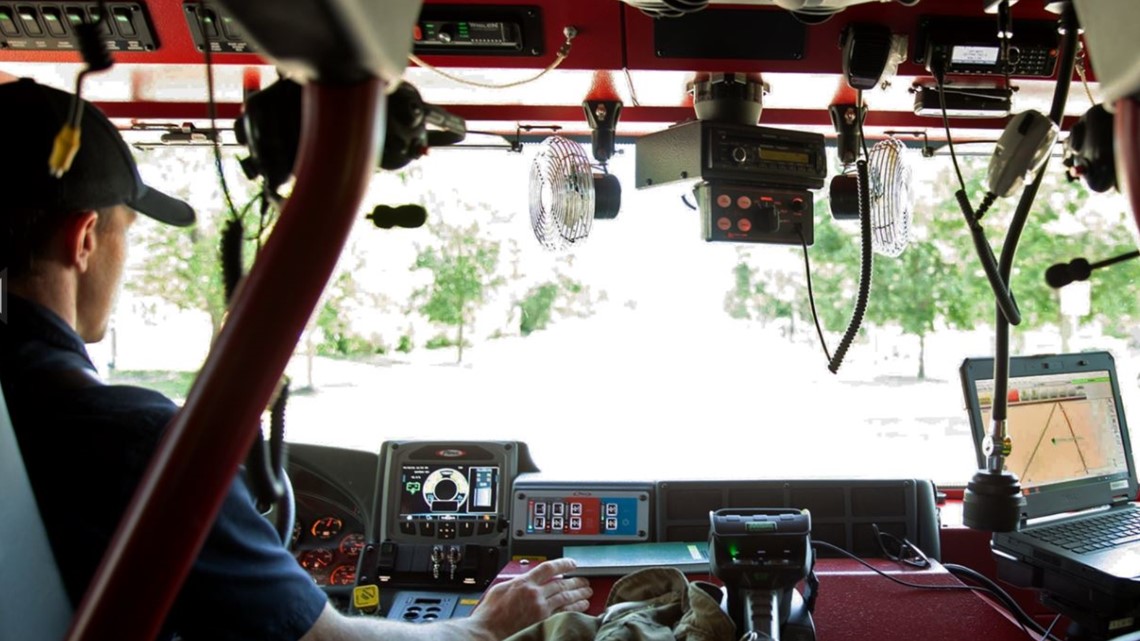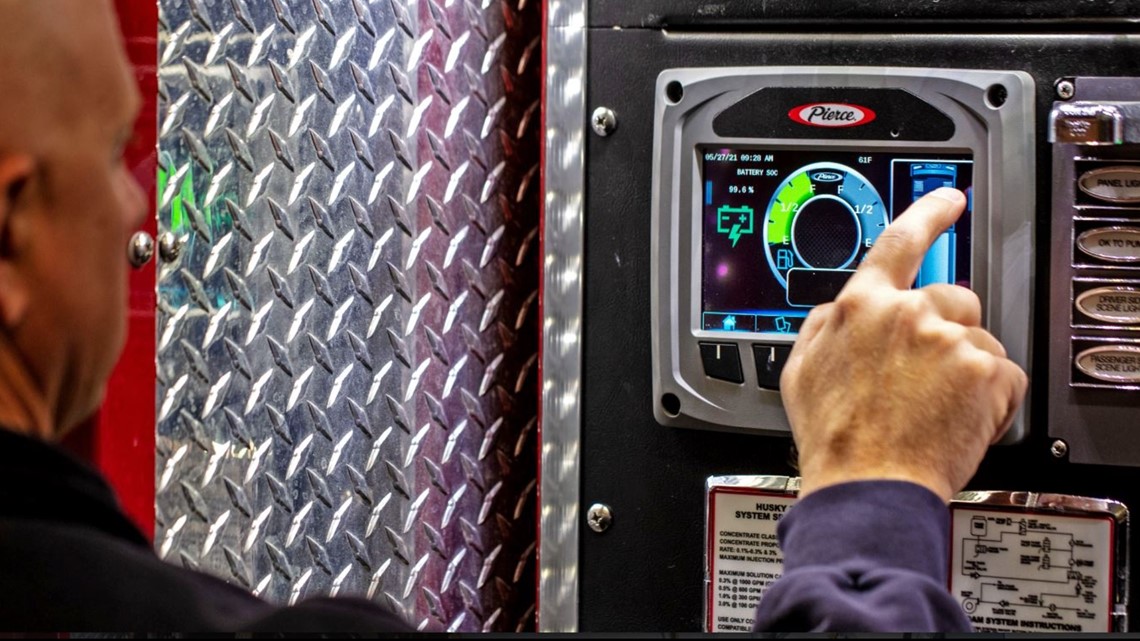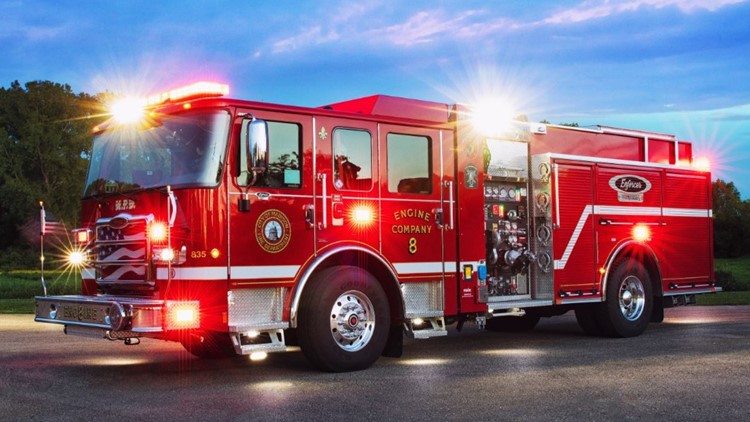DENTON, Texas — An electric fire truck, the first one of its kind in Texas, will start responding to emergencies in Denton by the end of the year, Chief Kenneth Hedges told WFAA.
“I think it’s going to be significant because I think it’s going to be the direction of the fire service,” he explained.
From the outside, the electric truck will not look any different from a diesel-powered one. But on the inside, rather than a polluting combustion engine, a 246-kWh battery will power this new Denton truck.
“Normal fire trucks are loud, cumbersome and require headsets for firefighters to communicate in the cab,” Chief Hedges explained. “The electric version is pure silence inside the cab.”


But something else really influenced the city’s decision to switch from diesel engines to an electric one.
“The number one reason is safety and wellbeing of our employees,” the chief explained. “Obviously diesel engines create carcinogens. With increased cancer risk in the fire service across the board, this is one step we’re taking to reduce possible cancer exposure.”
At fire scenes and sometimes at fire stations, firefighters are often exposed to diesel exhaust, though most departments have systems in place to try and reduce it.
Pierce Manufacturing is customizing Denton’s truck in Appleton, Wis. right now. It’s called a Volterra™ and will replace Engine One at Station One in downtown Denton.
The Volterra emits zero emissions while driving in EV mode and pumping water at the scene of fires. Still, it does have a back-up diesel engine for redundancy.
“Siddons-Martin is honored to continue our longstanding partnership with the City of Denton Fire Department as they embark on a pivotal journey towards sustainability and improved operational safety,” said Pat Siddons, President of Sales with Siddons-Martin Emergency Group, which sold the Volterra to Denton. “They are taking a leading role in setting new standards.”


While Denton will be the first in Texas with an EV fire truck, Madison, Wis., Calgary, Canada and Portland, Ore. already have them on the streets.
So, firefighters from Denton decided to fly to Oregon to get the pros and cons of how it works on a daily basis from firefighters themselves.
“Those are questions we asked Portland directly to get honest feedback,” the chief said. “We really did not get any negative response.”
Looking back, Chief Hedges admits he was initially skeptical of an electric fire truck but said engineers at Pierce answered his questions.
“I went to Wisconsin for the inspection of another engine a couple years ago and talked to an engineer of an EV,” the chief added. “The life expectancy of a battery pack itself is a minimum of 10-years and [battery] cells are improving, as we go.”
Most diesel fire trucks last ten years, the chief said, before they go into reserve service and get replaced.
“If we order a diesel fire truck today, it’s a minimum 48-months until it arrives. Prior to COVID, it was 12-months, so there are extremely long lead times. Another benefit of a Volterra,” the chief said, “it’s only a 12-14 month build time. We committed to this in September of last year and it will arrive in October of this year.”
The city paid $1.8-million for the electric truck, which is about $600,000 more than a diesel powered one. Denton’s sustainability fund helped make up the difference in cost and if it prevents just one firefighter from getting sick, it will be worth it, the chief said.
“We’re going to try one and see what it is,” he added. “But this will not be our one and only.”
The delivery date of the Volterra is Oct. 23.



